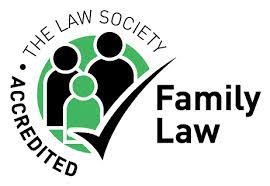The property market has, of recent times, been compared to a rollercoaster. With unpredictability, soaring interest rates, and demand constantly fluctuating, it can be difficult to obtain certainty, and therefore make informed decisions about how to treat property in a way that will benefit you the most.
Jeremy Hunt announced the spring budget on the 6th March 2024 for the new financial year ahead. Within the budget, the Government has made changes that will directly affect the property market.
As we cautiously step into the new financial year, these are the main changes which should be considered when making decisions about property:
Stamp duty land tax – multiple dwellings relief
Multiple Dwellings Relief in respect of Stamp Duty liability will be abolished from 1st June 2024. This form of relief was introduced in 2011 and allowed purchasers to take advantage of paying less Stamp Duty when purchasing more than one residential dwelling in a single transaction or in a series of qualifiable transactions. This was introduced to encourage individuals and companies to invest in residential properties. However, 13 years later, this change comes about as a result of research conducted by HMRC, which suggests that the initiative has failed to catalyse interest in the private rental sector, and that the relief was in actual fact being regularly abused.
How will this affect me?
If you are an individual or company purchasing a single dwelling, the abolition of multiple dwellings relief will not affect you. It will only increase the SDLT payable by individuals or companies purchasing 2 or more residential dwellings in a single or qualifiable linked transaction.
This may have an impact on affordability for those purchasing multiple dwellings. However, according to the research conducted by HMRC, it was found that only 17% of private individuals claiming Multiple Dwellings Relief said they were aware of it before purchase and that most individuals claiming Multiple Dwellings Relief are for higher value purchases (with an average purchase value of £940,000).
If you exchanged contracts before 6th March 2024 or complete your transaction before 1st June 2024, then you won’t be affected by this change.
Capital gains tax – higher rate
Another big announcement made by the Chancellor is the reduction in the upper limit of Capital Gains Tax from 28% to 24% from 6th April 2024. Capital Gains Tax is likely to be payable by individuals on the sale proceeds of certain assets, such as a residential property within a wider property portfolio. The lower rate of Capital Gains Tax will remain at 18%, for any gains that are eligible under a basic rate band.
In order to cope with rising demand in residential property, the change has been proposed to encourage landlords and second home-owners to sell their properties, this making more properties available for first time buyers in particular. The Chancellor has also announced that Private Residence Relief will remain available for those who have lived in the property they are selling for all of the time they have owned it, meaning the majority of residential property disposals will pay no Capital Gains Tax and will therefore be unaffected by this change.
How will this affect me?
If you own a second residential property which you are intending to sell and you will be taxed as a higher or additional rate taxpayer (£50,271 annual income or above), the amount of Capital Gains Tax will be reduced from 28% to 24%.
If you pay a basic rate of tax (£12,571 – £50,270 annual income), the rate of Capital Gains Tax has remained unchanged at 18%.
If you are selling your main residential home, you are eligible for Private Residence Relief and therefore will not pay Capital Gains Tax.
Furnished holiday lettings tax regime
The Chancellor has also announced that from 6th April 2025, the tax advantages for those who let short-term furnished holiday properties (such as Airbnbs) will be abolished. This relief meant that capital allowances could be claimed on the furniture, furnishings, and equipment for the property and also provided for reduced Capital Gains Tax on Furnished Holiday Lettings when they were sold. This has been abolished in an attempt to increase long-term rental availability for properties for local people and to also increase contributions from landlords on these types of property to fund cuts to national insurance.
How will this affect me?
If you are the owner of a Furnished Holiday Let, you will be unable to take advantage of capital allowances on furniture and fittings for these types of property and will likely pay more Capital Gains Tax on the sale proceeds. If you own these types of property, your tax position will be brought more in line with those of landlords who market properties with longer letting periods, however, the draft legislation and guidance is yet to be released.
IF YOU ARE CONCERNED ABOUT HOW ANY OF THE ABOVE CHANGES MIGHT AFFECT YOU, WE ADVISE THAT YOU OBTAIN FINANCIAL ADVICE FROM A QUALIFIED ACCOUNTANT OR INDEPENDENT FINANCIAL ADVISOR.
How can we assist you?
Our team of solicitors at Oliver & Co have many years of experience in the purchase and sale of residential and commercial property.
If you would like expert legal advice, please call our friendly team today on 01244 312306 or email us at NewBusiness@oliverandco.co.uk and we will be happy to advise and assist you in your property transaction.













